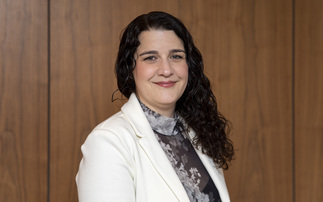How could we quickly increase volume in the UK protection market by 5%? Mick James looks to conversion options as a possible answer.
I live in Edinburgh, but over the past six years I have been working in London and Dublin on a regular basis. Not only is the beer different (something that requires careful and constant monitoring) but the way in which products are structured and sold varies a great deal.
One of the most interesting structural differences (and an interesting difference in naming convention) is the way in which conversion options are sold in the Irish market.
Typically, Irish conversion options allow the policyholder to extend the term of their life and critical illness (CI) cover for a particular benefit, or to cancel their policy and take out a new one, with no additional medical underwriting and without providing additional medical evidence.
There are usually a number of conditions attached to this feature. For example, typically you cannot exceed the existing sum assured, and you must exercise the option before you reach 60 or 65. In addition, you must take out the new plan at least one month before the end of the existing one. Some providers allow you to convert at any time during the plan, while others allow you to convert only at the end of the term.
The option is commonly taken out at inception, with Irish providers reporting 50%-70% of new business policies having the feature, and options being exercised in about 10% of cases. All of the major players in the market include this option, and it is well understood by brokers, causing it to become a significant product feature in the battle for market share.
Brokers in the Irish market report the average conversion option adds about 10% to the cost of the plan and is an easy up-sale for them to make on level plans. What I like most about this is that the Irish have managed to add an extra 5% value to their market through the widespread adoption of this option in their sales processes.
The Irish adviser portals help to facilitate this, because they have built functionality into their process. This gives the adviser a ‘with conversion’ and ‘without conversion’ quote as part of the normal process flow, allowing the adviser to easily engage the customer about this valuable benefit.
The level of flexibility offered in Ireland is startling, with policyholders effectively being able to convert their plans, potentially multiple times during the policy, each time taking advantage of the rates prevailing at the time.
With mortality continuing to improve and price matching occurring as a matter of course in the Irish market, this could create an opportunity for younger lives to renew multiple times with no underwriting.
During the early years of the policy, there is a real possibility that price matching may actually reduce the overall cost of the plan with the conversion option allowing the customer to lock into a cheaper price with an extended term.
UK renewal options
Compare this with the UK market, where these kinds of options are typically called renewal options and are found on a small number of providers polices with a handful of advisers actively selling to individuals and an even smaller amount of consumers actually buying.
In the UK, renewal options are more commonly pitched as a five-year roll-over deal aimed at use for Key Man covers. They are also often aimed at life only.
Some life offices do, however, offer a greater range of flexibility, but still there are only low levels of take-up. RGA estimates that on average about 1% of UK plans have this option with about 20%-30% of plan owners actually exercising the option (mainly influenced by the Key Man slant).
The price premium for the option also has different characteristics and costs about an additional 15% on the policy.
In the UK market, certain providers do offer these plans, but the policy restrictions are usually stricter than those found in the Irish market. For instance, it is far less common to be able to convert at any time during the life of the policy.
UK IFAs tell me they would rather try and fit the initial term of the plan to meet the needs of the customer, hence negating the need for built-in flexibility. In Ireland, IFAs are clearly taking a different view and believing that the flexibility offered by the conversion option is giving their clients additional and valuable cover options. Clearly, there is a difference of opinion as far as the best advice regimes go, and it is an area for further debate.
In conclusion, it is striking that, as we watch our own markets shrink, Irish brokers have managed to add an extra 5% to the value of their market by upselling an option to their customers.
For this practice to gain traction in the UK, quotes engines could be altered to provide ‘with’ and ‘without’ options side by side, which may provide the visibility that this valuable option needs to finally make a breakthrough into mainstream UK sales.
Mick James is business development manager at RGA UK








